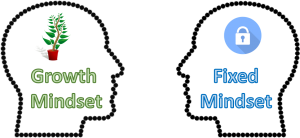Chodesh tov! Eleven days ago, on the 17th of Tammuz, we began the saddest period in the Jewish calendar (which commemorates the breach of the walls of Jerusalem before the destruction of the second temple). This period, known as “The Three Weeks”, is a period of intense mourning for the destruction of both temples in Jerusalem (the first in 586 BCE, destroyed by the Babylonians, and the second in 70 CE destroyed by the Romans). Our mourning intensifies on Rosh Chodesh Av, when the period known as “The Nine Days” begins, and this culminates with the saddest of all days, the 9th of Av, commemorating the destruction of both temples with fasting and the reciting of kinnot (deeply sad and mournful poems).
A legend is told of Napoleon who was taking a stroll through the streets of Paris with his advisors on the 9th of Av. As his entourage passed a small synagogue, they heard wailing and crying coming from inside. Puzzled by the commotion, Napoleon sent an aide inside to inquire as to what had happened. The aide returned after a few minutes and told Napoleon that the Temple of the Jews had been destroyed and they were in mourning over its loss. Napoleon was indignant! “How can it be I have no knowledge if this event? Where in the Empire did this occur? When did this befall the Jews of that community and who were the perpetrators?” The aide responded, “Sir, the Temple was lost in Jerusalem on this date 1,700 years ago.” Napoleon stood in silence and shock. “A people who has mourned the loss of their Temple for this long will certainly survive to see it rebuilt!” he said.
Jews do indeed have long a memory. There is no Hebrew word for history, only memory: zachor. Memory is something more personal than history. Jews relive history in a personal and national way on a weekly and yearly cycle. But two thousand years of mourning for a destroyed temple and a lost sovereignty should not be interpreted as a wallowing in misery and national self-pity. Jews have always seen history, including its darkness and brokenness, as a calling for response and an opportunity for growth. The Jewish response to tragedy has always been introspection and resolution. For example, the Talmud tells us that the second temple was destroyed because of “baseless hatred”, and the third temple will be rebuilt through “baseless love”.

Carol Dweck, the Stanford psychologist, in her paradigm shifting book, Mindset, explored why some children went on to great achievement, and others not, independent of their abilities. What made the difference, she found, was that some children fear failure, so they don’t take risks, whereas others don’t have this fear. In fact, they don’t even think of failure as failure. They think of it as learning; trying out something new; discovering what works and what doesn’t. She concluded that people who fear failure have a fixed mindset, and those unafraid to take risks and fail have a growth mindset. They think of ability as something you develop over time, so they keep learning, working, training and taking on new challenges. They have resilience. They are not put off by failure.
Famous examples from history of those with a growth mindset are the painter Van Gogh who, in his lifetime, sold only one of his 1,700 paintings, despite the fact that his brother and greatest supporter Theo was an art dealer. Or J K Rowling, whose first Harry Potter book was turned down by the first twelve publishers she sent it to. Or Steve Jobs who told the story of the three blows of fate that shaped his life: dropping out of university, being fired from Apple, the company he founded, and being diagnosed with pancreatic cancer. Rather than being defeated by them, he turned them all to creative use.
The Jewish approach to history is one of a growth mindset. Taking failure and tragedy and using it to grow and build, improve and strengthen.
Resources
Growth mindset and learning from failure to succeed are terms that are used and applied in the corporate world more and more, and they can also be of help to us in our Jewish community and education work. Below are some thought provoking articles and video resources to help you think about how you can apply these ideas to your own work.
- Carol Dweck: The power of believing that you can improve (TED Talk)
- J.K. Rowling: On the benefits of failure (Excerpt from Harvard Commencement Speech)
- Tim Harford: Trial, error and the God Complex (TED Talk)
- Leticia Gasca: Don’t fail fast — fail mindfully (TED Talk)
- What Having a “Growth Mindset” Actually Means (Harvard Business)
- Research every teacher should know: growth mindset (The Guardian)
- How Coca-Cola, Netflix, and Amazon Learn from Failure (Harvard Business)
- Use Failure as an Opportunity to Reflect on Your Strengths (Harvard Business)
-
Rabbi Josh Joseph: Failure, to Launch: The Upside of Falling Down (ELI talks)
In case you missed our last newsletter, the Yesod Summer Reading List is here, including books on Judaism and Jewish Thought, Leadership and General thought, and Jewish Fiction.
